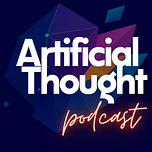What does AI mean in different parts of the world? This episode draws on Imagining AI: How the World Sees Intelligent Machines, an interdisciplinary collection edited by Stephen Cave and Kanta Dihal, to explore how artificial intelligence is understood, feared, hoped for, and narrated across cultures.
From dystopian Italian comics to Chilean cyberpunk, from Indigenous ontologies in Nigeria to social robots in Japan, the book reveals that “AI” isn’t a universal concept—it’s shaped by language, history, power, and politics. These cultural imaginaries don’t just influence science fiction; they affect how AI is built, governed, and adopted.
We unpack how different societies frame intelligence, agency, and the boundaries between human and machine. And we ask what it would mean to decentre Western narratives—to move from exporting AI ethics to co-creating them.
This episode is part of Artificial Thought, a series exploring how behavioural science and cultural context can help us rethink the systems we call intelligent.
Cave, S., & Dihal, K. (Eds.). (2023). Imagining AI: how the world sees intelligent machines. Oxford University Press.














Share this post